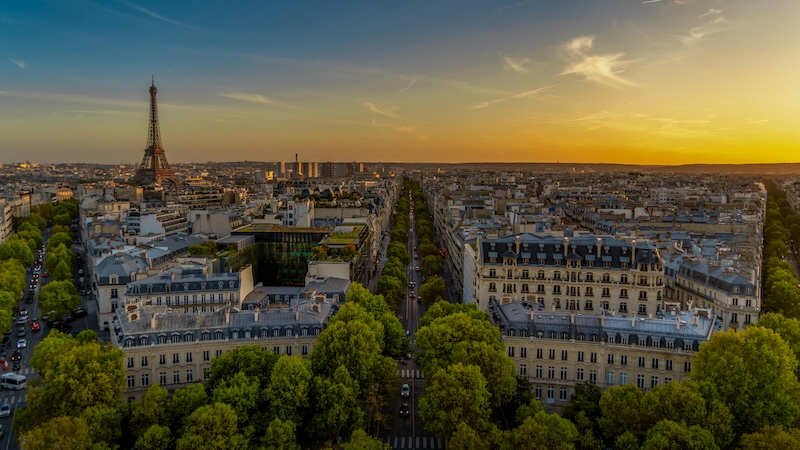Richard Wagner’s Paris years: the Hôtel du Quai Voltaire and the birth of The Mastersinger
Tour guide

Discover how Richard Wagner’s stay at Hôtel du Quai Voltaire in 1861 played a key role in the creation of his opera The Mastersinger of Nuremberg.
Who was Richard Wagner, and what brought him to Paris?
Did you know that Richard Wagner, one of the most celebrated composers of the 19th century, spent a formative part of his career in Paris? Best known for his powerful operas and musical innovation, Wagner came to Paris in search of recognition and opportunity. What was he looking for? A city that would embrace his ideas—and an environment that could support his creativity. In 1861, he found both, if only briefly, at the Hôtel du Quai Voltaire.
Why did Wagner choose the Hôtel du Quai Voltaire?
What made Wagner settle at this particular hotel? Located on the Left Bank of the Seine, directly across from the Louvre, Hôtel du Quai Voltaire offered the composer a rare combination of peace and inspiration. With its elegant, quiet rooms and stunning views over Paris, it provided the perfect setting for reflection and composition. Wagner wasn’t the first artist drawn to this location—and he certainly wouldn’t be the last.
What did Wagner work on while staying at the hotel?
Wondering what Wagner actually composed during his stay? It was at Hôtel du Quai Voltaire that Wagner wrote the libretto for Die Meistersinger von Nürnberg (The Mastersinger of Nuremberg), a comic yet deeply philosophical opera that would become one of his most enduring masterpieces. Why is this significant? Because this work marked a new direction in Wagner’s music—one that blended humor, folklore, and human emotion, all born from a quiet room above the Seine.
How did Paris influence Wagner’s artistic vision?
Could the city itself have shaped Wagner’s work? Absolutely. While his time in Paris was not always easy—marked by financial struggles and creative frustrations—the city also exposed him to new ideas, artistic communities, and the rich cultural atmosphere of mid-19th-century Europe. His surroundings, especially at Hôtel du Quai Voltaire, offered the calm and stimulation needed to bring his complex vision to life.
What makes Hôtel du Quai Voltaire ideal for today’s culturally curious travelers?
Looking for more than just a place to stay in Paris? Hôtel du Quai Voltaire is a destination for those who appreciate art, history, and authenticity. Why is this hotel different? Because it’s one of the rare places where you can actually stay in the same space once occupied by historical geniuses like Wagner. Its classic Parisian charm, peaceful ambiance, and central location make it perfect for travelers who want to experience the city through a cultural lens.
How close is the hotel to other musical and artistic landmarks?
Are you hoping to explore more than just Wagner’s story while in Paris? The hotel is surrounded by iconic venues like the Palais Garnier, the Philharmonie de Paris, and smaller concert halls throughout the Left Bank. Museums such as the Louvre and the Musée d’Orsay are just steps away. Whether you’re attending a concert, visiting a music-themed exhibition, or simply wandering the Seine, staying here places you at the crossroads of artistic history.
Can you still experience Wagner’s legacy at the hotel today?
Is it possible to feel that same creative energy today? Absolutely. While the hotel has been lovingly updated, its historic soul remains intact. Rooms retain their old-world charm, and the atmosphere encourages quiet thought and creative flow. For fans of classical music or history lovers, just being in the same hotel where Wagner shaped The Mastersinger is a meaningful experience—one that connects the past with your present-day journey.
Why should Hôtel du Quai Voltaire be part of your Paris itinerary?
Are you seeking a stay that offers more than convenience? Hôtel du Quai Voltaire is more than a hotel—it’s a cultural landmark. Whether you’re following in Wagner’s footsteps, planning a literary tour, or simply drawn to the beauty of the Seine, this hotel offers something few others can: a direct link to the artistic soul of Paris. For those who value inspiration, authenticity, and elegance, there’s no better place to stay.
Conclusion
In 1861, Richard Wagner found in Hôtel du Quai Voltaire the peace and perspective he needed to craft one of his greatest operas. The views over the Seine, the refined setting, and the creative pulse of Paris all converged to help shape The Mastersinger of Nuremberg. Today, travelers can still walk through those same hallways and gaze out the same windows. A stay at Hôtel du Quai Voltaire is more than accommodation—it’s a living chapter of musical history. For culture lovers and curious minds, it offers a rare and lasting connection to one of the most creative moments in Wagner’s life.


